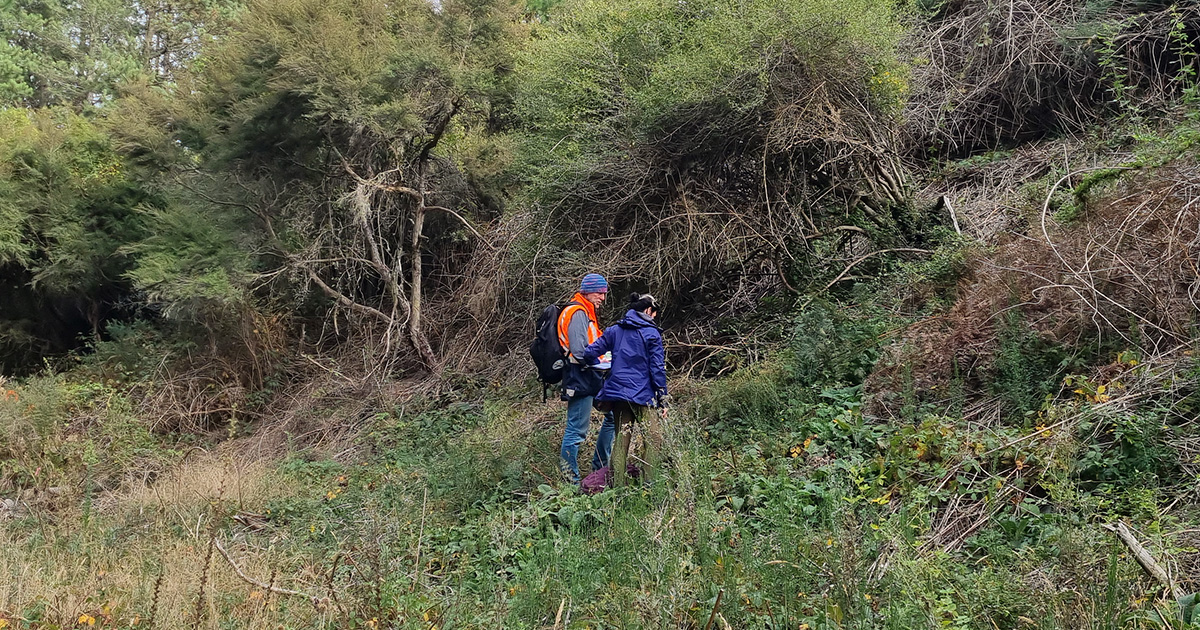This Earth Day, Council is proud to share the district's progress towards a more sustainable future. We've achieved significant milestones in reducing landfill waste and empowering our community to make eco-conscious choices, thanks to collaborative efforts between the council and passionate residents.
Thousands of tonnes no longer being landfilled
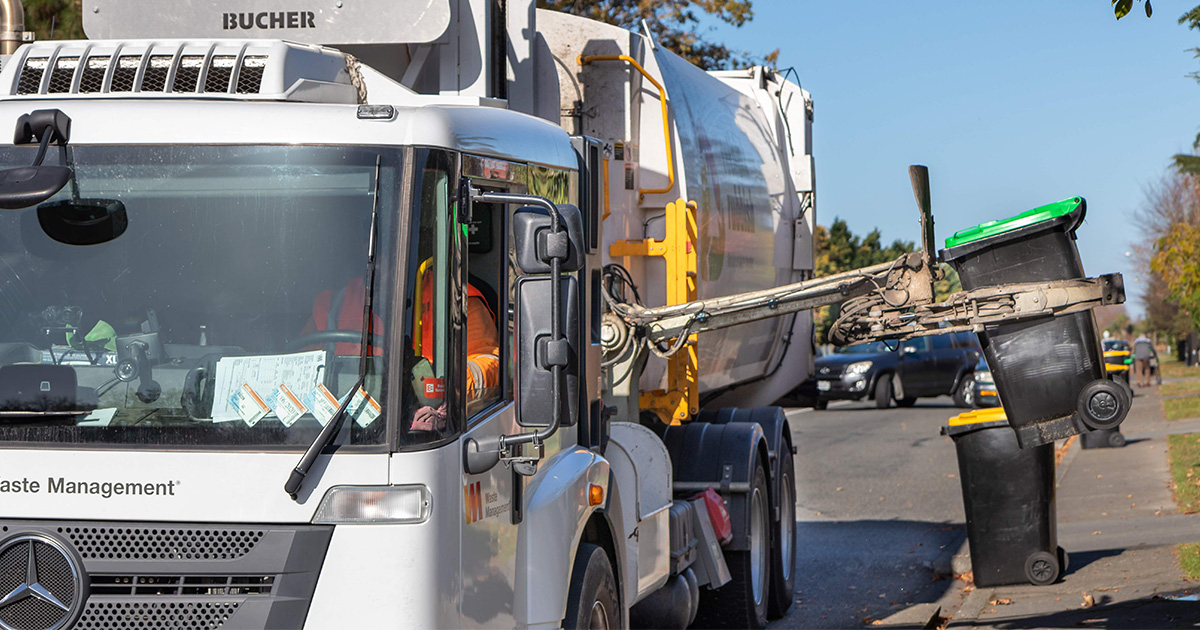
Each of Waimakariri’s residents on average is dumping almost 70kg less rubbish when compared to 2017.
While on a personal basis that’s quite the feat, when considered across the District that’s 4,685 tonnes less rubbish!
Council’s 2023 Waste Assessment showed a drop in per-capita waste from 325 kg/capita to 256 kg/capita since the last assessment in 2017.
A visual audit at Southbrook Resource Recovery Park by Waste Not Consulting also indicated that the optional organics bin collection service has resulted in a significant decrease in organic waste going to landfill.
Solid Waste Asset Manager Kitty Waghorn said this is a great result for Waimakariri.
“Of the councils whose waste has been audited by the same consultant, we are one of the lowest in New Zealand for per-capita waste.”
There’s also been an uptake of recycling across the District, and she gives credit to those living rurally.
“We’ve got people from rural areas who really love coming to the transfer stations and doing their recycling there. So, even if we don’t provide kerbside collections out to them, they are still doing their bit.”
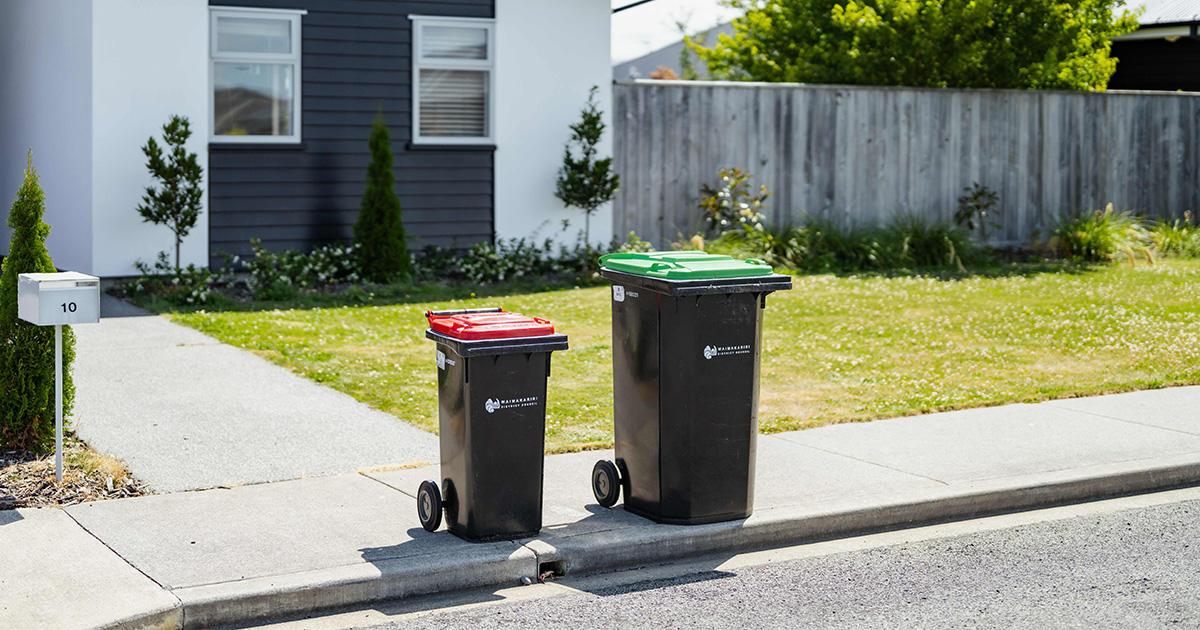
Although the Waste Assessment produced some clear wins, it was a reminder that there is still work to be done. A sort and weigh audit of organics and rubbish bins, and council rubbish bags, as well as the visual audit at Southbrook Resource Recovery Park both revealed that food scraps and garden waste is still contributing to a substantial proportion of waste going to landfill.
This shows that, while the organics kerbside collection service has been effective at bringing down the amount of organic waste making it to landfill overall, there is still garden and food waste going into rubbish bins and bags. And that’s something the Council is going to have to work with the community to change.
Since its launch in 2019, 70% of properties eligible for the organics kerbside service now have a green wheelie bin.
Households can choose the organics bin size that suits them best out of the 80L, 140L and 240L size range, but Kitty said there are many simple ways that households can reduce the amount of food scraps and garden waste that makes it into those bins each week.
“Things like the choices people make at the supermarket, through to composting at home and setting up worm farms.
“A great resource is the Love Food, Hate Waste website. They have great tips on meal-planning and making sensible shopping choices, how to store your food to prevent waste, and recipes to help people use leftovers and more commonly discarded food scraps.”
Waimakariri District Council is required to undertake a Waste Assessment every six years, in accordance with the Waste Minimisation Act 2008.
The results from the 2023 Waste Assessment will be used to identify key issues and priority areas that will influence Council’s new draft Waste Management and Minimisation Plan which is up for review later this year.
Learn more about Rubbish, Recycling & Organics
Lesley’s 14-year love affair with rethinking waste
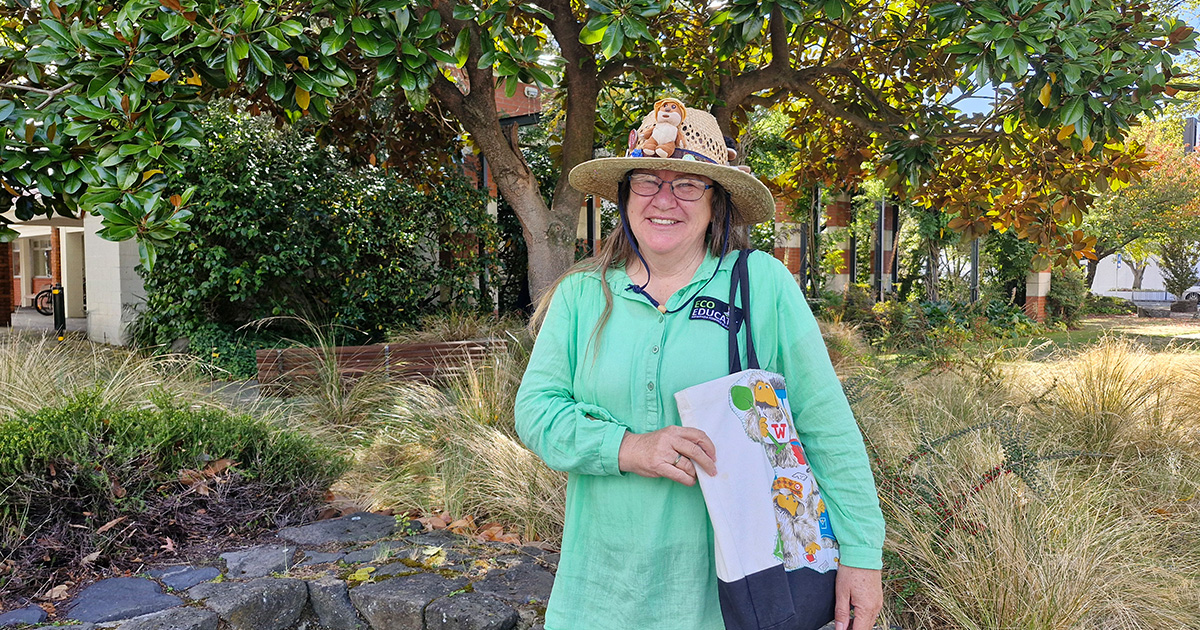
Eco Educate founder Lesley Ottey has spent the last 14 years challenging Waimakariri’s young – and not so young – to rethink waste and has no plans to slow down anytime soon.
In 2010, the sustainability educator set up her business after being gobsmacked at how blissfully unaware some people are about where their food comes from, and their waste goes.
Since then, the business has grown to a team of thirteen passionate eco-educators, who each bring their own flavour and skillset to address the many questions around sustainability.
Lesley says Eco Educate has been working in Waimakariri with the council contract for about thirteen years now.
“Our role in the Waimakariri is funded by the council to help and support schools and the wider community reduce their waste to landfill and look after water, which is a massive umbrella to work under.”
More than 70 Waimakariri preschools and schools are benefiting from Eco Educate. Their engaging sessions can cover anything from reducing waste, making worm farms and compost, through to learning about water – including where it comes from, how to conserve it, and what happens when we flush.
While there’s a plethora of topics they can cover, Lesley says workshops can be tailored to help mitigate the issues happening at a particular school.
“We might walk into a school and the caretaker will say to us that someone’s been flushing yoghurt pottles full of shingle and they ask if we can mention that in our talks.”
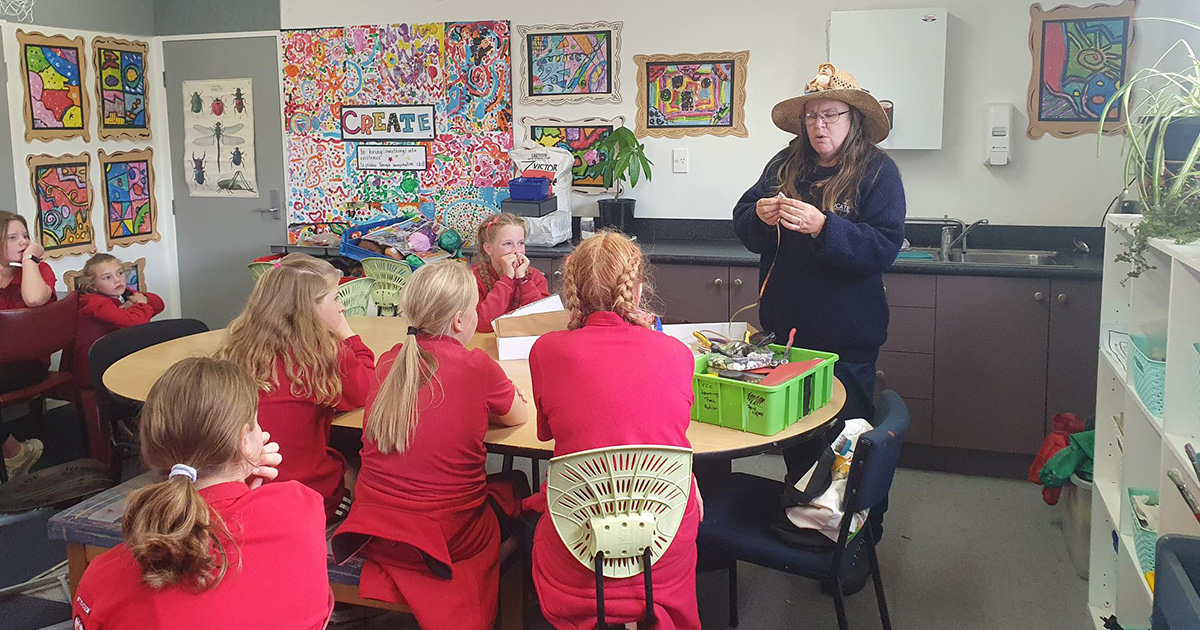 Alongside their work with schools, Eco Educate also run an audit team who are out and about on collection days, checking kerbside recycling bins. This is to help lower the amount of contamination that’s going into the trucks. Lesley says auditing can be hard work, and even scary at times, especially when people react to their bins getting tagged.
Alongside their work with schools, Eco Educate also run an audit team who are out and about on collection days, checking kerbside recycling bins. This is to help lower the amount of contamination that’s going into the trucks. Lesley says auditing can be hard work, and even scary at times, especially when people react to their bins getting tagged.
“Say hi to the auditing team and give them a smile because they’re literally saving the district hundreds of thousands of dollars. We want to be able to help and support getting it correct, but when someone puts wood ash or grass clippings in their recycling bin, no one’s going to be able to clean that out of a truckload.
“Most of our recyclers are good people wanting to do the right thing. And we totally understand plastic confusion. So, stick to what the new council stickers say and then you’ll get it right. You can collect new stickers for your bins from any Council service centre.”
One of Lesley’s most memorable moments in her career was going back to a recycling bin after it was found containing used nappies and food.
“We went back two weeks later to check that bin, and the lady came running out, and she was from Brazil – English was very much a second language – and her bin was perfect. She was so mortified that she’d got it wrong that she tipped out its contents, and scrubbed and cleaned the bin. The bin had gone from smelling like used nappies to soap powder and butterflies.”
While her work has gained recognition at the North Canterbury Business Awards, she says the biggest buzz was when she bumped into a past student who told her she was the reason she’d gone to study environmental science.
“The feedback’s just lovely and seeing the changes from people just wanting to try and do stuff differently… This is the sort of stuff that gives me hope.”
Eco Educate can support anyone from schools, businesses, and community groups, and even offer behind-the-scenes tours of Southbrook Resource Recovery Park.
Lesley and the Eco Educate team will also be at the Back to Basics Waimakariri expo on Saturday 20 April from 11am – 2pm, at Rangiora Baptist Church Hall.
Head to ecoeducate.co.nz or visit their Facebook page to find out more.
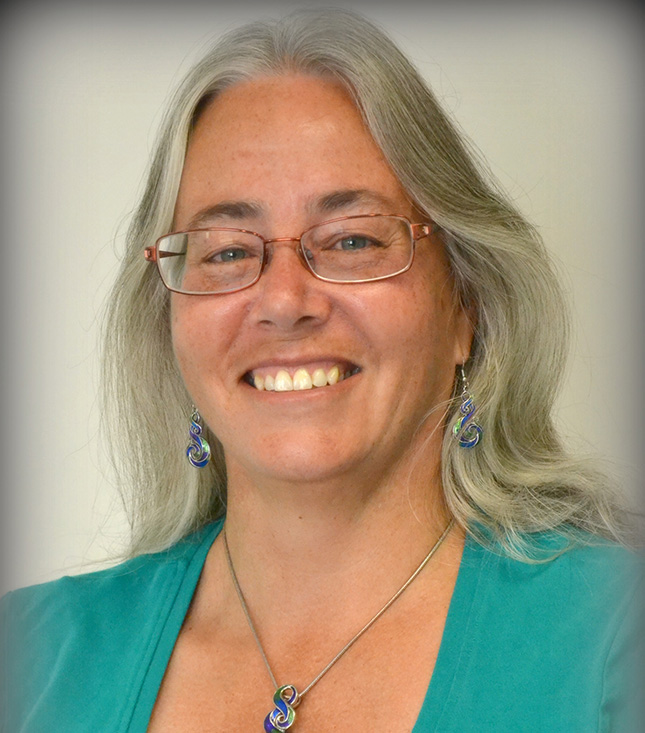
Meet our Staff
Kitty - Solid Waste Asset Manager
Tell us a bit about what you do?
I’m in charge of the solid waste team, and my role specifically covers managing the Solid Waste assets. Our team of two manages the kerbside collection, transfer station and waste minimisation education contracts, and we oversee maintenance and monitoring of the Council’s cleanfill pits and closed landfills. We coordinate how everything Council receives at the kerb and transfer stations gets removed for processing or disposal, plus the audits to make sure people put the right things in the kerbside bins.
How long have you worked at Waimakariri District Council?
I’ve been with the Council for 24 and a half years (25 years in November).
How did you get into your job?
I’m a civil engineer by training, and applied for a job with the Council when my second child was two years old. I didn’t get that job, but I was taken on in the Essential Services department shortly afterward, when 2 of their 3 staff were out of action owing to illness and Y2K was approaching. It was a temporary position but after a few months the role became permanent.
What things do you like the most about your job?
I’m kept busy and things are never boring. I enjoy working with other Council staff and our contractors, and also with other waste officers regionally and nationally. I also like being able to help the community, schools and businesses do better with waste minimisation through a wide range of projects and services.
Do you have a cool story you want to share?
I have so many cool stories. One that sticks in my mind is a local preschool were part of the Paper for Trees programme and got given some native saplings because they had done really well with their cardboard and paper recycling. The preschool then asked if they could plant them at the Rangiora Park Lawn Cemetery by Coldstream Road, which was approved, and the wee ones were so excited to plant the little trees to make this space prettier for other people in the community.
Kaiapoi Co-op business the way forward
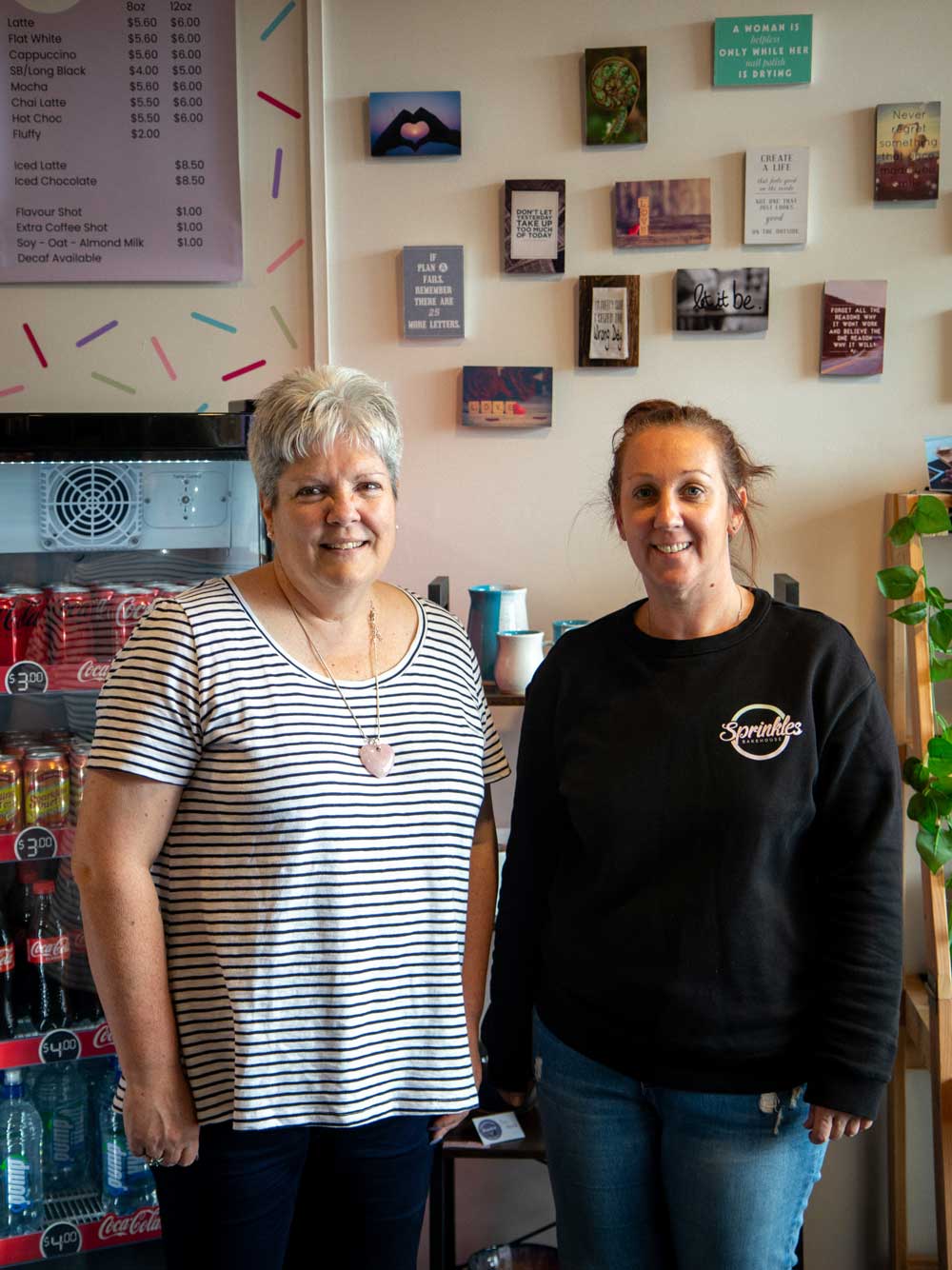
North Canterbury Creative (NCC) has recently launched a new venture in Kaiapoi.
NCC Founder Robyn Matheson is a Kaiapoi local and has been a long time exhibitor of her crafts at markets, noticing that North Canterbury was lacking a regular indoor craft market, she started monthly markets at the Kaiapoi Club in June last year, before expanding to Rangiora.
She has also started doing a monthly pop up market at Northwood which has bought in many new stallholders and market goers.
The Emporium in Kaiapoi is Robyn’s new venture which opened in March. The store is located next to the SPCA Op Shop in Kaiapoi. Similar to a co op shop, Robyn charges a small weekly rental to merchants to sell their products there.
They have products from up to 60 small businesses available for purchase. Sprinkles Bakehouse (formerly called All Caked Up By Lisa, another Kaiapoi local) is an anchor stall holder with a permanent counter in the Emporium offering takeaway coffee and delicious sweet treats five days a week.
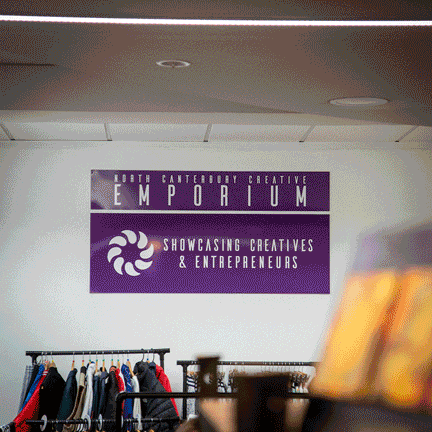
NCC also recently took over the bimonthly North Canterbury Holistic Markets at Ashgrove School.
Robyn says the Emporium has been really busy since the day it opened.
“People love coming in and supporting local. This is not only a great option for shoppers but it also means that our stall holders can sell and showcase their crafts without needing to be in store.
“Often our stallholders are working other jobs and their crafts are enterprises they have on the side. This is also a great sustainable business model – we are in easy walking distance in the town and we are a one stop shop so people aren’t driving their cars all over the District to go to different shops.”
Lisa Stewart from Sprinkles Bakehouse says it’s great to be able to work in a place with shared overheads. She said the energy costs and rent that individual businesses would have to pay is cost prohibitive to many.
“You would have to pay four to five times the price. This is a much more sustainable way to do business. Everything under one roof.”
Hidden Gem: Matawai Park
 600m loop
600m loop Dogs on leash
Dogs on leash Public Toilets
Public Toilets
Nestled discreetly in suburban Rangiora is a park by name but a wonderland by nature.
Matawai Park is an expanse of green, dotted with islands of wild native vegetation and surrounded by forest paths that are just waiting to be explored.
Covering approximately four hectares, the Park reflects the native vegetation and landscapes of the Canterbury region including grassy hills and plains, thick forests, and swamp vegetation, as well as a picturesque pond.
A 0.6km loop presents a pick-your-own-path style adventure that will suit every member of the family including furry ones.
The park was purchased by the then Rangiora Borough Council in 1970 but wasn’t officially opened until 1990. In those forty plus years 25,000 trees have been planted here making it the perfect place to stop and picnic a while or crank up the BBQ that’s available for public use.
Looking for an activity? Why not try one of our nature scavenger hunts!
- Mystery Minibeast Hunt (Click to download)
- Actions in Nature (Click to download)
- Leaf Scavenger Hunt (Click to download)
- Nature Bingo (Click to download)
Meet our Staff
Bex - Ecologist - Biodiversity
Tell us a bit about what you do?
I am an ecologist and sit within the Greenspace Department. My work is essentially to assist and advise on the opportunities to enhance, create and protect the natural environment. This takes several forms including education and events, connecting our local community to the environment; assisting other departments (such as the consenting team, the planning team, the project delivery unit) with technical advice; offering technical and practical advice and restoration plans for Council land and private land owners; undertaking collaborative ecological research and working with local community groups and residents.
How long have you worked at Waimakariri District Council?
I have worked at the Council for just over 2 years and was delighted when the position came up as I had spent a good 7 years prior wandering around the dryland habitats in the south of the District. Getting the job felt a little like coming home.
How did you get into your job?
I have always been the kid to be found playing in mud, with the ants, climbing trees and picking wild fruit so I studied for a BSc Wildlife Conservation degree in Liverpool, UK to make my play a little more official. After further research (read “jollies”) in the Arctic researching climate change and in heavy metal soil contamination, I worked as an ecological consultant which had me leading the ecological input into a range of projects such as windfarms, pipelines, road and bridge construction and housing developments in the UK and Europe. The best part was the range of plants, ecosystems and critters I had to deal with – karst systems, wetlands, ancient woodlands, lizards, snakes, newts, birds, invertebrates and all manner of mammals from badgers to bats. I moved to New Zealand in 2012 and decided it was time to gain some in-depth NZ knowledge so spent a number of years at Lincoln University researching the restoration of drylands in agricultural environments in the south of the District alongside Ngāi Tahu Farming.
What things do you like the most about your job?
Although it sounds a bit cheesy, I can honestly say that I love all parts of my job and can often be found hanging around at out-of-hours community events. The best reward always comes when I know I am working with and for with the community, whether that be a group of wonderful small humans ready to learn about bugs, an inspiring landowner who can teach me about their land or advocating for the sustainable use and development of the beautiful natural environment we get to experience in the Waimakariri district.
Do you have a cool story you want to share?
I am an ecologist, but also a psychologist. I am currently continuing my studies in an effort to effectively disseminate the benefits of nature to our mental health. Healthy people have more freedom to look after what they love – but we only love what we know, hence my penchant for education and different types of play and celebration around the district. On one of my educational stints, a wonderful small person came to me during our minibeast hunt and blew me away with knowledge about earthworms, When I asked if she had seen any, she exclaimed, “I have them all in my pocket”. Sure enough, this person loved worms so much she had decided to gather them to add to her own garden collection. We had a chat about it and eventually decided the worms might want to go back to their own community so were released. It was a brilliant reminder of how being open, curious and enthusiastic can bring such reward to life.
| Stay informed, stay involved. Subscribe for early access to our newsletter and exclusive Council Project & Community updates. Subscribe now |
|---|

